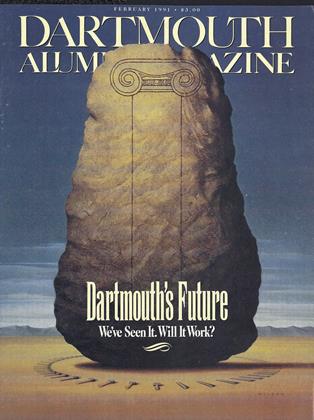• Lucille Clifton, Two-Headed Woman (University of Massachusetts Press, 1980)—Born in 1936, Clifton is one of the unique voices of her generation. Though her comment about herself has been limited to "I am a black woman poet, and I sound like one,"the distilled brevity of her poetry can make her sound a litde like Emily Dickinson, and her subjects take in all human experience.
• Louise Gluck, The Triumph of Achilles (Ecco, 1985)—Gluck's hard-edged eloquence makes her poems shine like crystal. Sharp, perceptive, and clean, her poems are ambitious philosophical searches into human relationships and the nature of the self.
• Gajway Kinnell, The Book of Nightmares (Houghton Mifflin, 1973) Informed by a traditional Christian sensibility, Kinnell has become more and more aware of death as life's deepest affirmation. His language can be solemn and rhythmic, sometimes priestly. His subjects attempt to strip away the personal and go so deep into the self as to acknowledge the most elemental energy of the cosmos. This book, written for and about his two young children, is one of the most powerful sequences I know about parent and child.
• Stanley Kunitz, Next-to-Last Things (Atlantic Monthly, 1986) At 86 the oldest poet listed here, Kunitz combines in his work the formal and metaphysical with a passionate desire to reconcile and reshape "the world's wrongs and the injustice of time." He stands out as a poet of vision and grace.
• Philip Levine, Selected Poems (Atheneum, 1984) Hardnosed, often an- gry, Levine speaks for the working class. Fiercely honest in his exploration of place and character, his poems are plainspoken and direct, though they master a range of forms. He is unflinching in his condemnation of greed and injustice in our society, yet it is the search for redemption that underlies Levine's work.
• Adrienne Rich, Diving Into the Wreck (Norton, 1973) Rich exceeds all others in her ability to write poems that are overdy political, yet transcend any unilateral aspect of sexuality and politics. Her poems are beautifully crafted, intelligent, profound, and move from the personal into our common condition.
• C.K. Williams, With Ignorance (Houghton Mifflin, 1979) of the poets listed here, "Williams is unusual for his insistence on the unavoidability of human suffering. Psychic pain and the threat of annihilation make all but the smallest consolations impossible. Mostly narrative and characterized by extremely long lines, his poems insist on starkness, a deliberately plain syntax, and a conversational tone. Williams's strength lies in his ability to let readers participate in his discoveries and process: he makes you see what he sees.
• Elizabeth Bishop, The Collected Poems (Farrar, Straus & Giroux, 1984) I promised myself to stay with living poets here because those listed above are ones I'd very much like to have visit Dartmouth, but it's impossible for me to talk about contemporary poetry and leave out Bishop. In her poems she is our ultimate observer of the life around us; she studies the minute, often ordinary details of the physical and manages to convey a stardingly original, sometimes delightful world. Formality, both in tone and structure, and wit govern her work. Viewing the small matters of the everyday, always attentive to flora and fauna, Bishop has a moral vision that determines transformation, epiphany, and transcendence.
 View Full Issue
View Full Issue
More From This Issue
-
 Feature
FeatureThe End of The Story
February 1991 By Dan Nelson '75 -
 Feature
FeatureZ-Man Covers The War
February 1991 By Robert Eshman '82 -
 Feature
FeatureOUR PASSIONATE PREFERENCE
February 1991 By Joseph D. Mathewson '55 -
 Cover Story
Cover StoryNow For The Hard Part
February 1991 By Jay Heinrichs -
 Feature
FeatureWHO OWNS DARTMOUTH?
February 1991 By Joe Boldt '32 -
 Feature
FeatureIs Harvard Becoming More Like Dartmouth?
February 1991







